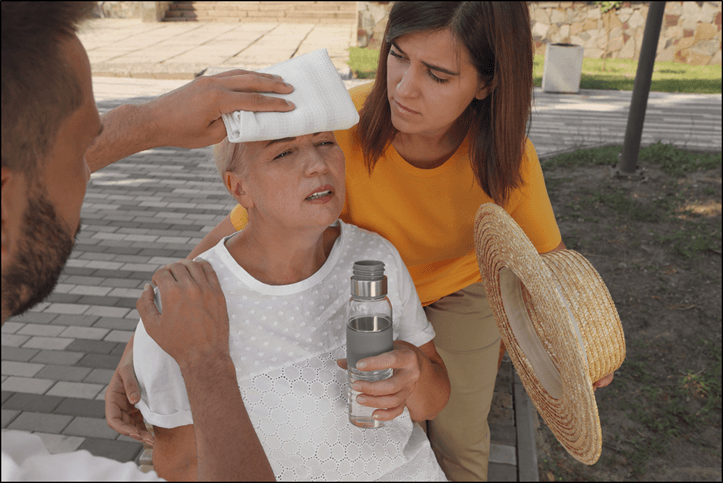As temperatures start to creep up in South Georgia this summer, Southwell is urging community members to know the warning signs of heat-related illness like heat exhaustion and heat stroke.
According to the Centers for Disease Control (CDC), heat-related illness is a condition that results from exposure to extreme heat, preventing the body from being able to properly cool itself. This results in a rapid rise in body temperature. The CDC estimates that 600 people in the United States die from heat-related illness each year.
“Here is South Georgia, we all know we have extreme heat in the summer,” said Kelly Garvin, Family Medicine Physician at Southwell Medical Clinic in Tifton. “This heat can be deadly, especially for vulnerable populations like children, elderly, and obese individuals. People like athletes and outdoor workers are also at an increased risk.”
Garvin said there are important steps that everyone can take to better protect themselves and their families from heat-related illness.
- Stay in a cool, air-conditioned building if at all possible.
- Wear light, loose-fitting clothing.
- Never leave children, other individuals, or pets in a car, even with the windows open.
- Stay hydrated. During heat waves, the CDC recommends drinking even more water than usual.
- Check on family members, friends, and neighbors, especially those who are more vulnerable to heat illness, during a heat wave.
- Know the signs of heat stroke and call 911 if you see someone experiencing this.
- High body temperature (103° Fahrenheit or higher)
- Red, hot, dry or damp skin
- A fast, strong pulse
- Headache
- Dizziness
- Nausea
- Confusion
- Unconsciousness
“Heat-related illness can be incredibly dangerous, but there are ways to protect yourself,” said Garvin. “We urge all community members to read the tips above, learn the signs of heat exhaustion and heat stroke, and stay safe this summer.”
